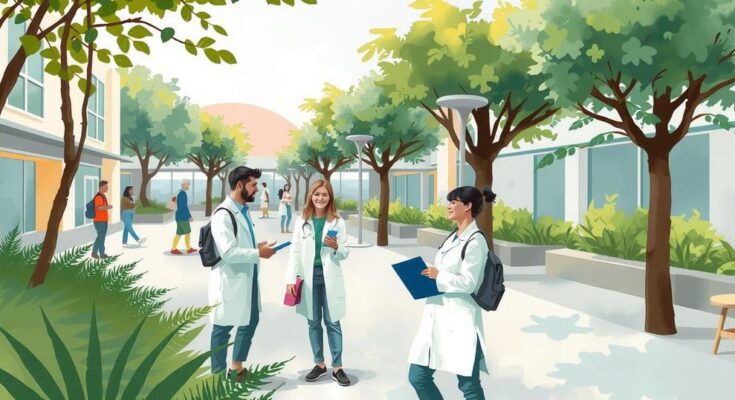A recent survey in South Africa reveals that many people are unaware of living scientists, emphasizing the necessity for scientists to engage more visibly with society. Expectations for visible scientists include strong reputations, evidence-based communication, and dedication to public service. The findings suggest a need for increased visibility, especially among younger and female scientists, fostering public trust and effective science communication.
A recent survey conducted in South Africa reveals significant insights about the public’s expectations regarding visible scientists. With science continuously making headlines, it becomes increasingly essential for scientists to engage actively with society. By establishing their presence in the media, they can disseminate new ideas, shape science policy, and counter misinformation, thereby fostering public trust in science, especially during crises.
Interestingly, the survey of 1,000 respondents in South Africa and 1,000 in Germany demonstrated a lack of recognition for many scientists. Over half of the participants could not name a living scientist from their country, often resorting to mentioning deceased scientists or public figures who are not primarily known for their scientific contributions. This suggests that the general public often conflates visibility in media with scientific expertise.
Notably, some respondents named controversial figures, including Wouter Basson, previously dubbed as “Dr Death” due to his involvement in apartheid-era crimes. The mention of such figures indicates a broader societal perception that anyone speaking about science may be recognized as a scientist. Conversely, prominent health researchers who gained visibility during the COVID-19 pandemic were more frequently cited, underlining that contemporary contexts impact the public visibility of scientists significantly.
Regarding expectations, the survey revealed that visible scientists are expected to possess strong professional reputations. Respondents from both countries believe they should be articulate, media-savvy, selfless, and dedicated to serving the public’s interests. They also emphasized the importance of evidential support in scientific discourse.
Furthermore, the survey indicated that visible scientists do not adhere to specific gender or seniority norms, opening doors for younger and female scientists to enhance their public profiles. The findings showed that expectations for scientists in South Africa and Germany bear remarkable similarities, suggesting a universal public perception of scientists.
As part of the Many Labs project on public trust in science, the survey emphasizes the necessity for scientists to engage more actively with the public and encourages them to connect with professional communicators. Numerous resources and courses exist for scientists seeking to bolster their media presence.
The survey underscores the critical need for visible scientists to engage with the public, illustrating the societal expectations surrounding their roles. While there is a significant gap in public recognition of living scientists, opportunities exist for improvement. The findings suggest that fostering diverse scientific voices and enhancing public engagement can contribute to shaping a better understanding of science in society. Ultimately, scientists must strive to build public trust and combat misinformation by being proactive and visible.
Original Source: theconversation.com




